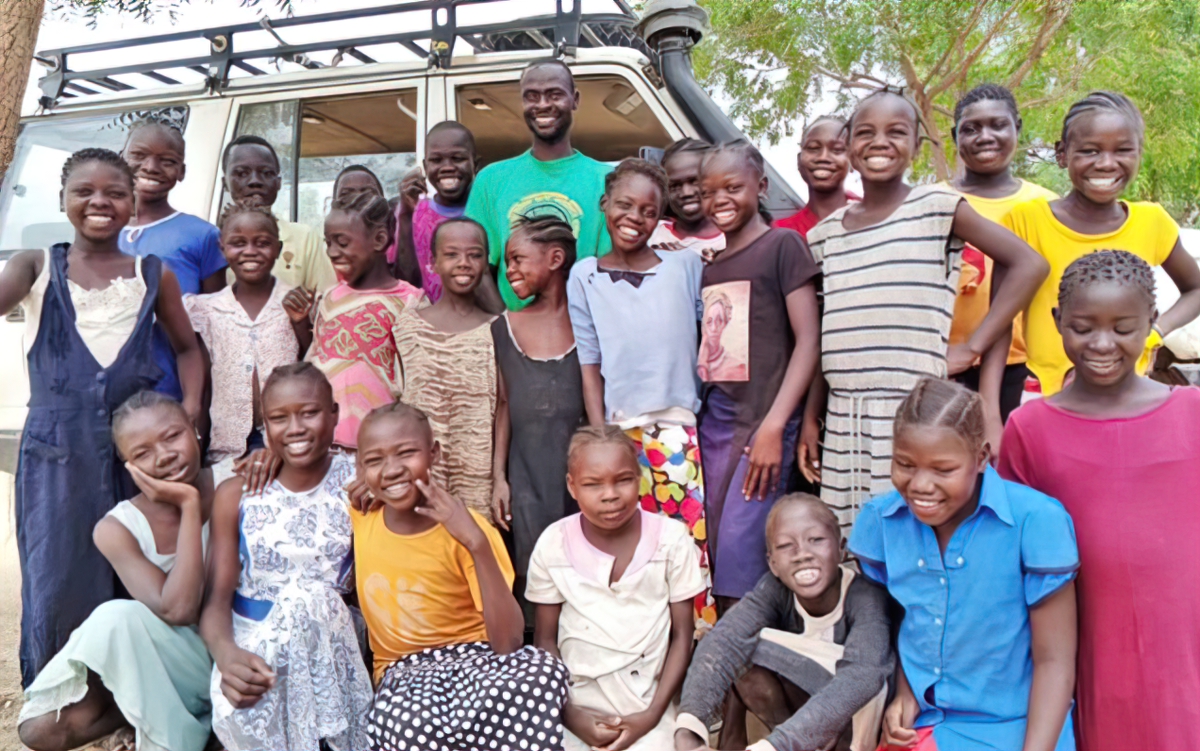NEW YORK – Lift Up the Vulnerable (LUV) leads the only indigenously-directed anti-human trafficking network spanning Sudan and South Sudan.
Overview of Sudan and South Sudan
The residents of the two countries have suffered decades of instability, military conflict, food scarcity, and economic hardships. Nearly four million South Sudanese have been displaced as a result of violence and lack of public services. Ironically, about 250,000 Sudanese have migrated to South Sudan to escape the internal conflicts in Sudan.
Coming in at 13th in Open Doors 2021 World Watch List and ranked between Syria (12th) and Saudi Arabia (14th), Sudan has been characterized as a hotbed of persecution for Christians.
A change in government in April 2019 has begun to signal a shift in attitudes toward Christians from a Muslim background. Under past administrations, converts to Christ faced the death penalty under Islamic law.
As Open Doors notes, laws may change, but “attitudes are not eradicated overnight.”
The CIA World Factbook notes that in South Sudan,
“Educational attainment is extremely poor due to the lack of schools, qualified teachers, and materials. Less than a third of the population is literate (the rate is even lower among women), and half live below the poverty line.”
In Sudan,
“Armed conflict, poor transport infrastructure, and denial of access by both the government and armed opposition have impeded the provision of humanitarian assistance to affected populations.”
The two countries have become the perfect places for human trafficking to prosper.
This is where Lift Up the Vulnerable has chosen to serve—a place where the Gospel and humanitarian aid are desperately needed.
Overview of Lift Up the Vulnerable
If we are going to aid the most vulnerable, someone must be willing to go to where the most vulnerable are. LUV’s commitment is to go there and do that. This is how they do it.
- They participate in effective change-making in lawless lands by building partnerships with indigenous directors and their local staff to creatively address the issues affecting those who are vulnerable in culturally appropriate ways.
- They empower indigenous leaders who utilize their experience, expertise, and resources to care for the vulnerable in their local communities.
- If the right indigenous leadership is not in place, they do not move forward with initiatives of their own making.
- All community development and services offered are intimately linked to the indigenous leaders and their innovating visions for what is appropriate in their community and tribe.
- Together, they determine specific steps and strategies to provide consistent, sustainable care for the children and women under their care.
- They offer significant boots-on-the-ground time at each location to deepen trustworthy relationships with these vital human resources who are experts in their field.
LUV’s collaboration with other like-minded ministries promotes the ability to accomplish more for the mutual beneficiaries of their aid. Examples of their cooperation with other ministries include:
The Kenya Safe House. The facility provides a secure location where women and children can receive medical attention that is unavailable in Sudan or South Sudan. Beneficiaries are sheltered safely during their rehabilitation process.
Our Father’s Cleft. The Cleft includes a safe home, clinical care, and school for nearly 450 children who would otherwise be at extreme risk.
New Life Ministry. The NLM is similar to the Our Father’s Cleft, serving about 600 at-risk children. NLM also offers holistic aid for widows and rescued trafficking victims.
Hope for South Sudan. HFSS not only provides schooling, a safe home, and a clinic for about 400 children but is also collaborating with Rise Against Hunger in “a five-year initiative that aims to build capacity in crop production for consumption and income generation and increase dietary diversity for improved nutrition.”
Lift Up the Vulnerable is determined to eliminate the exploitation of vulnerabilities, provide freedom, and restore hope among people who need that help the most.
Read more news on Christian Persecution, Faith Based Organizations and World Missions.
Sources:
- Lift Up the Vulnerable, ECFA
- Lift Up the Vulnerable, Official Website
- Open Doors, 2021 World Watch List
- CIA World Factbook, Sudan
